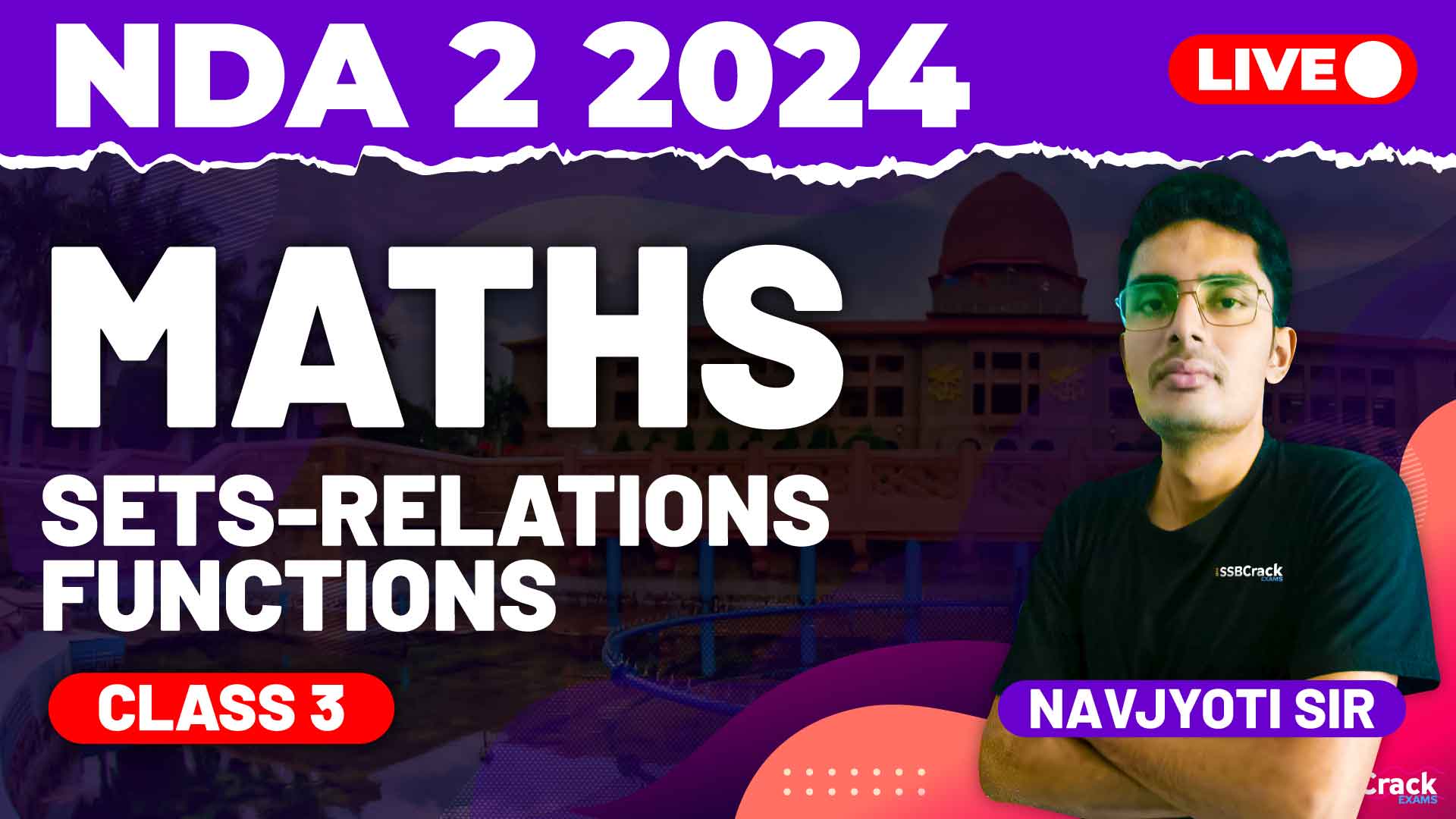As part of the preparation for the NDA 2 2024 exam, our third live class on “Sets, Relation & Function” focused on practicing Multiple Choice Questions (MCQs) that encompass all the concepts and formulas previously discussed. This session aimed to reinforce the theoretical understanding and application of these mathematical concepts through practical problem-solving. The blog will cover the various types of MCQs tackled in the session, emphasizing the key areas of sets, relations, and functions.
Sets
Sets form the foundation of many mathematical concepts and are crucial for understanding relations and functions. MCQs on sets typically cover the following areas:
Basic Definitions
- Set Notation: Understanding how sets are represented and the different ways to denote elements.
- Types of Sets: Identifying various types of sets such as finite, infinite, equal, null, and universal sets.
- Subset and Superset: Determining if one set is a subset or superset of another.
Operations on Sets
- Union and Intersection: Problems involving the combination and common elements of sets.
- Difference and Complement: Questions focusing on the elements in one set but not in another, and the complement of a set within a universal set.
- Power Set: Identifying all subsets of a given set.
Relations
Relations describe how elements from one set are connected to elements in another set. Key areas covered in MCQs include:
Basic Concepts
- Definition of Relation: Understanding how a relation pairs elements from two sets.
Types of Relations
- Reflexive, Symmetric, and Transitive Relations: Determining if a given relation has these properties.
- Equivalence Relations: Identifying relations that are reflexive, symmetric, and transitive simultaneously.
Functions
Functions are a specific type of relation where each input is related to exactly one output. MCQs typically address the following:
Basic Definitions
- Function Notation: Understanding how functions are represented.
- Domain and Codomain: Identifying the set of inputs and possible outputs.
Types of Functions
- One-to-One (Injective): Determining if each element of the domain maps to a unique element in the codomain.
- Onto (Surjective): Checking if every element of the codomain is covered.
- Bijective: Identifying functions that are both one-to-one and onto.
Inverse and Composite Functions
- Inverse Functions: Finding the function that reverses another function.
- Composition of Functions: Combining two functions to form a new function.
Practicing MCQs
To effectively reinforce these concepts, the live class involved extensive practice with MCQs. This approach helps in:
- Understanding Problem Patterns: Recognizing common types of questions and the best strategies to solve them.
- Time Management: Practicing MCQs helps improve speed and accuracy, crucial for exam conditions.
- Application of Formulas: Applying theoretical knowledge to practical problems ensures a deeper understanding.
Conclusion
Mastering the concepts of sets, relations, and functions through rigorous practice of MCQs is essential for success in the NDA 2 2024 exam. This third class emphasized practical problem-solving, reinforcing theoretical knowledge, and enhancing exam readiness. By continuously practicing and analyzing these types of questions, students can build confidence and improve their mathematical skills, ensuring they are well-prepared for the exam. Remember, consistent practice and a clear understanding of fundamental concepts are the keys to success.







